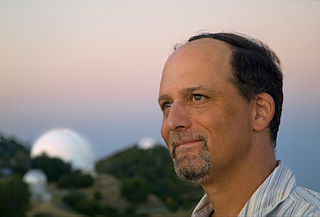A Quote by Visar Zhiti
Related Quotes
That, they never could lay their heads upon their pillows; that, they never could tolerate the idea of their wives laying their heads upon their pillows; that, they never could endure the notion of their children laying their heads upon their pillows; in short, that there never more could be, for them or theirs, any laying of heads upon pillows at all, unless the prisoner's head was taken off.
A major puzzle for which nobody has an answer is this: is there some size at which the planets change their nature from water-rich planets like Neptune, to rocky planets like the Earth? We have found two planets that are the size of the Earth in radius, but they are very close to their host star, so water on the surface would evaporate away.
When authoritative reports of radical-design craft having spectacular performance are viewed in the light of a stream of astrobiological discoveries, the possibility that some UFOs are alien does not seem quite so farfetched. Serious-minded scientists in astronomy and other disciplines estimate there could be billions of planets in the universe, and millions that could harbor life. If even a few of those planets were occupied by technological civilizations, their ability (if not desire) to explore other worlds, such as ours, must be a possibility.
There's no doubt that the search for planets is motivated by the search for life. Humans are interested in whether or not life evolves on other planets. We'd especially like to find communicating, technological life, and we look around our own solar system, and we see that of all the planets, there's only one that's inhabited.
And in between the two, in between the sky and the sea, were all the winds. And there were all the nights and all the moons. To be a castaway is to be a point perpetually at the centre of a circle. However much things may appear to change-the sea may shift from whisper to rage, the sky might go from fresh blue to blinding white to darkest black-the geometry never changes. Your gaze is always a radius. The circumference is ever great. In fact, the circles multiply. To be a castaway is to be caught in a harrowing ballet of circles.
He wondered how he could ever have thought of the planets, even of the Earth, as islands of life and reality floating in a deadly void. Now with a certainty which never after deserted him, he saw the planets - as mere holes or gaps in the living heaven - excluded and rejected wastes of heavy matter and murky air, formed not by addition to, but by subtraction from, the surrounding brightness.

































